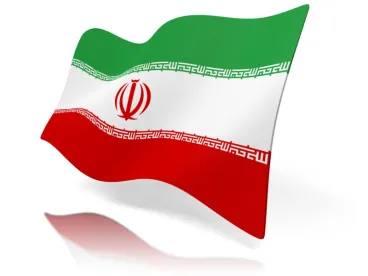As of August 29, there is renewed optimism that the EU, the US, and Iran are on the verge of reviving the Joint Comprehensive Plan Of Action (JCPOA) to limit Iran’s ability to develop nuclear weapons in exchange for a lifting of some of the sanctions imposed on the Islamic Republic. Last August, Joseph Borrell, the EU High Representative for Foreign Affairs, circulated the "final text" of an agreement based on 16 months of negotiations. [1] Tehran responded favorably. [2] Subsequently, Borrell voiced hope that the US response would put an end to the negotiations and the U.S. provided its response last week. [3] Although the State Department has not commented on the content, spokesman Ned Price said the current text is based on a March text that had the administration’s backing, suggesting that the final text is indeed acceptable to Washington.[4]
The world has never been as close to a renewed deal as now.
A return to the JCPOA would entail the lifting of a number of U.S.-imposed sanctions, making it easier for financial institutions to be involved in Iranian transactions. Although many U.S. sanctions will remain, along with serious legal and financial penalties for any violations, the sanctions landscape will be changing. Financial institutions need to be aware of this and plan accordingly.
What are the operational consequences for financial institutions?
Complying with international sanctions is a time-consuming, difficult and risky undertaking. U.S. penalties for transgressors can be eye-wateringly high. A renewed U.S.-Iran deal would certainly ease the pressure on banks and other financial institutions’ sanctions programs. However, it is important to understand that many sanctions on Iran will remain. The scope of a new JCPOA would likely be similar to the original 2015 agreement, in that it would only lift secondary sanctions. Primary sanctions would remain, meaning that U.S. financial institutions would still be prohibited from being involved in Iranian transactions.
Primary sanctions prohibit “U.S. persons” from transacting with certain countries, entities, and people. The definition of “U.S. persons” includes all people and entities within the U.S.; all U.S. citizens and permanent resident aliens wherever they are located; and all U.S. companies and their foreign branches (and sometimes their foreign subsidiaries). Breaking primary sanctions can lead to civil and criminal penalties.
Secondary sanctions do not need a U.S. connection. They apply to “non-U.S. persons” (that is, foreign entities and people) directly or indirectly engaged in certain transactions that occur outside the U.S., relating to sanctioned countries. This makes the laws “extra-territorial”. Breaking secondary sanctions does not usually lead to civil and criminal penalties, but can lead to limits on access to, or exclusion from, the U.S. financial system and markets.
Seven Practical Steps to Take if the JCPOA is Revived
There are therefore several practical steps that financial institutions will need to take if the JCPOA is revived and secondary sanctions lifted, as follows:
-
Update screening tools and watchlists to incorporate the new sanctions regime.
-
Revise policies and procedures to reflect the new requirements. Although the material used for the original JCPOA might be a useful starting point, any new documentation should be carefully drafted to include changes in the wider geopolitical, regulatory and economic environment.
-
Create detailed training material and manuals for staff. Given the technicalities of the JCPOA, it is of critical importance that staff are fully aware of the regulations governing Iranian-related transactions.
-
Update software in light of the potential new JCPOA agreement, including transaction monitoring and sanctions screening applications.
-
Implement measures to archive watchlists and other information. If a new JCPOA is subsequently changed, these archives will prove useful in complying with future sanctions regulations.
-
Update internal lists of existing clients who were authorized and licensed to trade with Iran during the original JCPOA. This will help identify where such authorization may need to be reviewed if the secondary sanctions regime is eased.
-
EU and UK banks should consider how their relationships with U.S. correspondent banks could be affected. U.S. correspondent banks are typically highly risk-averse and, while a new JCPOA might facilitate some trade with Iran, how much of this would fall within their risk appetite is another matter. A failure to consider this might result in the withdrawal of correspondent banking relationships.
A deal will change the sanctions landscape dramatically and rapidly. Financial institutions need to be aware of this and plan accordingly.
_______________________________________________________________
FOOTNOTES
[1] https://euobserver.com/world/155727
[2] https://www.aljazeera.com/news/2022/8/23/analysis-are-the-us-and-iran-about-to-restore-the-nuclear-deal
[3] https://www.reuters.com/world/middle-east/eus-borrell-answer-iran-eu-proposal-nuclear-deal-was-reasonable-2022-08-22/
[4] https://www.youtube.com/watch?v=6taAu3WWddM





 />i
/>i


